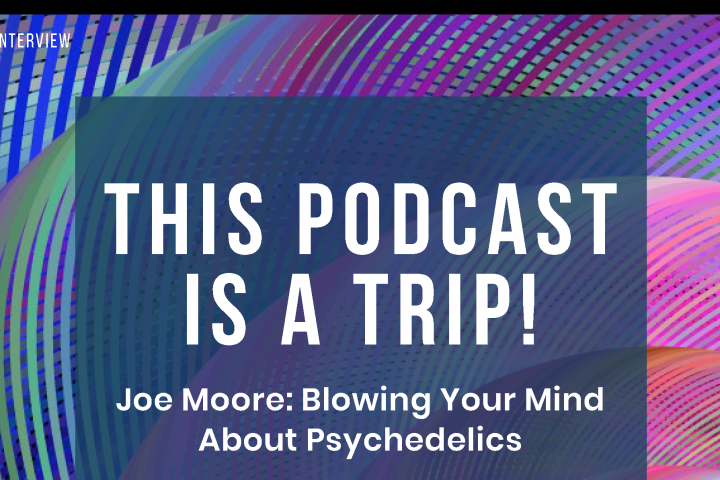There are so many popular podcasts we all listen to… in the categories of comedy, politics, religion, education, fiction, non-fiction, and beyond.
But have you ever thought about the companies behind them?
Have you noticed if the podcast is actually part of a company’s marketing strategy? If you have, you likely feel “wooed in” by it as you listen
This isn’t a negative thing at all. In fact, it’s actually one of the best marketing strategies all companies have the ability to leverage right now.
With Joe Rogan’s exclusivity deal with Spotify for an estimated $100 million, podcasting is currently gaining even more attention—and using podcasting as a core marketing strategy has many benefits.
Take ZipRecruiter’s podcast, RISE AND GRIND, for example. Created by the company and hosted by FUBU founder and Shark Tank host Daymond John, this show focuses on interviewing high-performing guests about how they approach their work and find success. Listeners are exposed to ZipRecruiter many times, and the topics discussed are extremely relevant to the company’s ideal customers.
Blue Apron’s Why We Eat What We Eat podcast is an educational style show covering many topics around food and eating. It is perfectly positioned to attract potential customers to Blue Apron because of the subjects discussed.
Let’s now dig into how these companies are using podcasts to grow their businesses.
Attracting New Customers
It’s probably obvious from the two examples above that podcasts can be created with the intention to attract ideal customers to a company. If you have a job in the recruiting business, why not create a show that will attract the type of people who want to join a service like ZipRecruiter?
If you have a food preparation subscription service, why not create a podcast that attracts people who would be most likely to purchase from you?
When you put out content that grabs curiosity, provides value, and fulfills the desires of a company’s ideal customer, the selling of products and services becomes much easier. And, as a bonus, podcasts usually create raving fans. Listeners can’t wait to tell their friends and family to listen to the show, too, and boom—it’s basically free marketing for the company.
Sponsoring Podcasts
Sometimes companies don’t have their own podcast, but they pay to appear on relevant podcasts their target audience might be listening to. They locate a related podcast through either an agency or their own research and outreach.
Companies will typically pay between $20-30 per thousand downloads per episode. So, if a company has 10,000 downloads per episode, that means the sponsored advertisement will cost around $500. Sometimes, there are required minimum investments and different pricing options (like flat rate), but you get the idea.
These types of sponsored ads are typically host read for higher conversion rates. Translation: If the podcast host reads the ad with his or her own personality and tone, the companies who sponsor will typically see better results from the ads.
Guest Appearances on Podcasts
Another way companies leverage podcasting is by making guest appearances on relevant podcasts. There are many ways companies can find them—one of our favorites is the website ListenNotes.com. Simply type in keywords, topics, brand names, and people’s names to locate podcasts to reach out to.
Many companies will either have an outreach person on their team or will hire a public relations team to get their company leaders featured on the podcasts of choice. This is a great way to give value to a new audience and talk about their brand. It’s a perfect relationship builder, as it grows trust with potential customers.
There is often a win-win for the podcaster and the guest. On the Hustle and Flowchart Podcast, Charley Vahler of Vahler Media discussed how he helps manage a podcast for a company that buys and sells businesses. In this show, he made sure that listeners understand all of the main problems and challenges related to buying and selling businesses. He then brings on specific guests to discuss and move past each potential challenge. Bringing on a guest speaker typically provides value to the audience and podcaster while giving the guest speaker a platform to share valuable content and present his or her own brand.
Repurposing Podcasts into Other Media
When a podcast is recorded, it’s typically in audio format only. Smart companies with podcasts realize that a lot of hard work went into creating that audio—so why not repurpose?
Repurposing is the act of taking one media type and turning it into others. For example, an audio can easily become a stylish audiogram video for social media using a tool like Headliner. Or, it can be made into a nicely organized blog post to share on the company’s website.
Creating many pieces of content from an audio podcast helps people discover that podcast via multiple outlets: audio, video, and text. This increases the chances of attracting ideal listeners who might well become customers in the future.
To wrap things up, podcasting is an extremely powerful media type that many companies are now recognizing as sources for growth. It’s the best way to create a relationship with ideal customers on a mass scale thanks to its intimate nature. Companies are able to quickly convert podcast listeners into fans of their brand, and ultimately, into customers.






